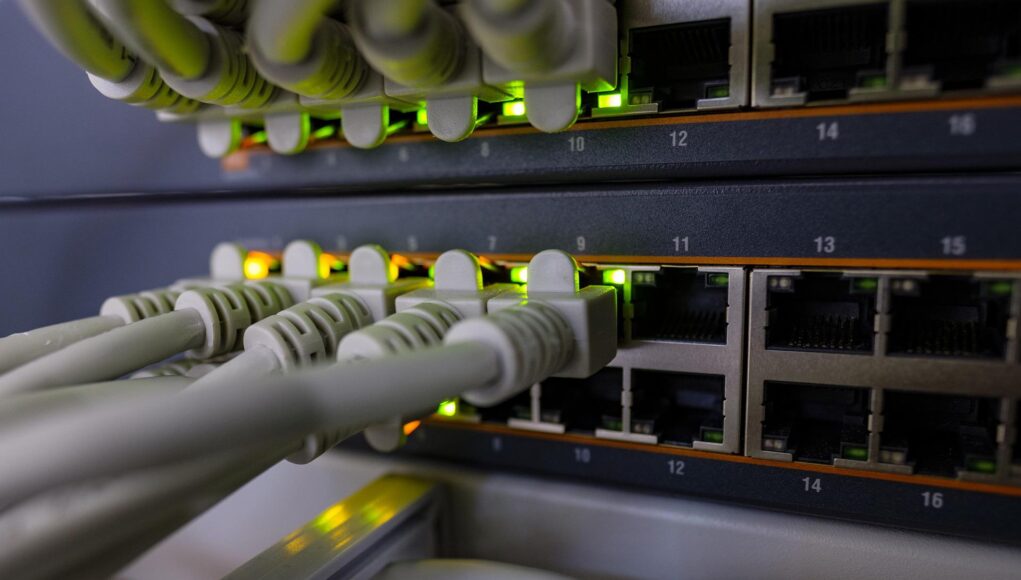What is a Managed Router?
Routers are more similar to cops for your small business network safeguarding the data transmission. They send data efficiently among multiple network sites and support internet connectivity with the help of ISP’s. In the absence of routers, smaller corporations will have to rely on different types of communication which can turn out to be more expensive than it would have cost if a simple router is used for this purpose.
Types of Managed Routers:
When it comes to communication, “Network” is the core of the data that is sent to one another. Because of this, it’s only natural then to call a network device such as a router the “heart” or cybernetic-circulatory system of your network.
There are different types of routers currently in the market based on application. They are Edge routers, Home routers, IP/ VPN Routers, and Wireless routers. If you need more information about any of these for instance because you’re in search of a new net machine or router, we’ve compiled some basic information below that will help sharpen your understanding even better:
Wired Router:
Wired Routers are the earlier version of the Router that is connected with cable at both ends for the data transmission. The wired Router is connected to the device at a single point with a cable and the connectivity of the Wired Routers is limited. One end of the cable is connected to the Router to receive the data whereas the other end is connected to the device to transmit the data. Ethernet Broadband Router is the popular Wired Router. But as the Wired Router’s device connectivity is limited, they are replaced with wireless routers to enhance the connectivity.
Wireless Router:
Wireless Routers are in contrast to the Wired Routers. And connect through radio signals that allow the connectivity of multiple devices. The connectivity is transmitted through signals where the electronic devices within the signal range are connected with the network with an ID & Password if the Network is password protected. However, none of the networks will be public.
Edge Router:
This Router forms the strong base of the Network irrespective of being wired or wireless. Edge Routers can be both wired & wireless that distribute data between networks but the same cannot be done within the network. These Routers enable smooth communication with other networks that are connected through Internet Service Providers. Hence, the Edge Routers help in the transmission of high-speed data.
Core Router:
The core Router is in contrast to the Edge Router as Core Routers transfer data within the network as against the Edge Router. These Routers enable heavy data transfer at high speed within the network. These Routers also sustain the routing protocol used in the network kernel. At times, the core routers connect multiple networks in a large enterprise or workplace demanding high performance as the primary requirement.
Virtual Router:
Virtual Routers are nothing but the VPN Routers that are connected with the Virtual Router Redundancy Protocol (VRRP). The routers are connected as a group and function accordingly as per VRRP. This enables it to replace another router when the master router in the group fails to function. The Virtual Routers enable unlimited connectivity, better adaptability, accessibility to unblock applications & content and easy single-time login.
Benefits of Managed Router:
Routers are the source of network transmission and are part of the obligatory network devices though the quantity varies depending on the business size and requirement. Let’s know the benefits of the Managed Routers.
- The network traffic is minimized due to broadcasting domains and collision features.
- The secured IP chooses the best routing across a network.
- Simple connectivity to Wired & Wireless Routers.
- Strong password protected
- Highly secured with no information loss.
- Enables to connect with various networks such as Cable, Wifi, VLAN, etc.
- Hassle-free connectivity through signals to any number of devices.
Difference between Managed vs Unmanaged Router Switches:
The major difference lies in the process of how the Routers are managed. In short, Routers are systematically managed by a team. That takes care of all the aspects of the Routers are called Managed Routers. Managed Routers are less complicated and hassle-free from the user’s perspective. On the other hand, Unmanaged Routers do not have constant maintenance and hence, add a burden to the user for the minor issues too.
What is the best choice to opt between Managed vs Unmanaged Router:
At the top Managed Routers will always be the top choice due to the systematic way of managing them and enriching the user experience. Though at times, some small businesses prefer unmanaged routers. It is always necessary to go for Managed Routers only because of the error-free network connectivity too. Hence, when it is Managed Routers vs Unmanaged Routers, always go for Managed Routers.
Managed Router Services:
Managed Router Services are also part of the Managed Service Providers wherein different Network Operations Solutions are provided. The exceptional Managed Network & Services helps the businesses minimize the unnecessary additional expenditure incurring towards maintenance and improves the business’s productivity on the whole. Choose from the Best of the Managed Service Providers that support your business growth journey.
Apart from this if you are interested to know more about Managed NOC Monitoring Services then visit our Technology category













